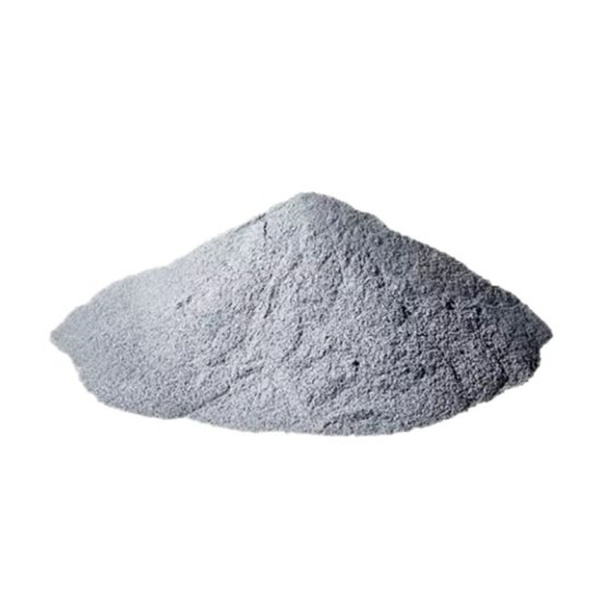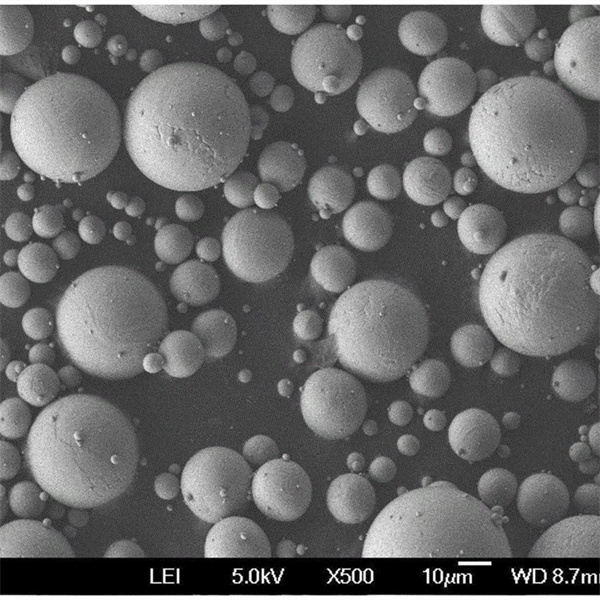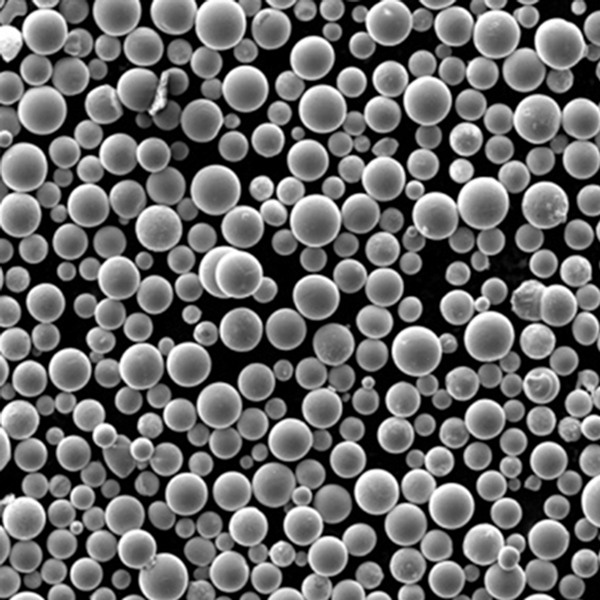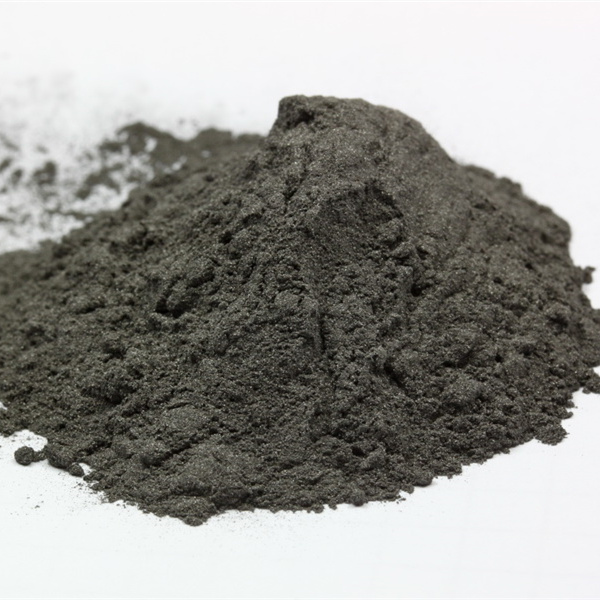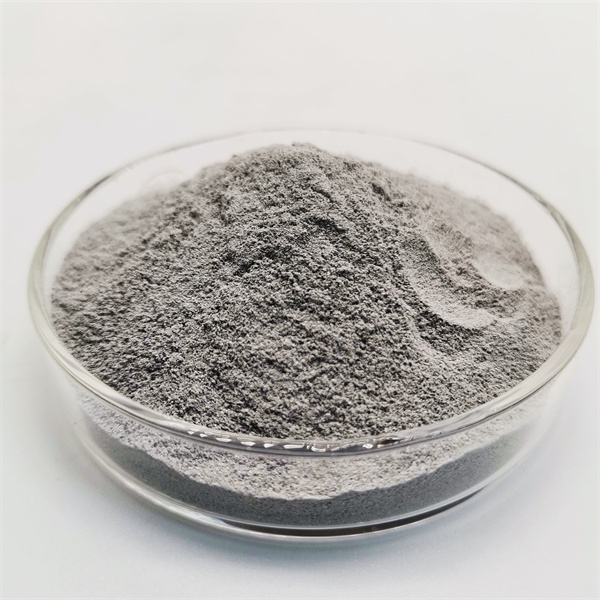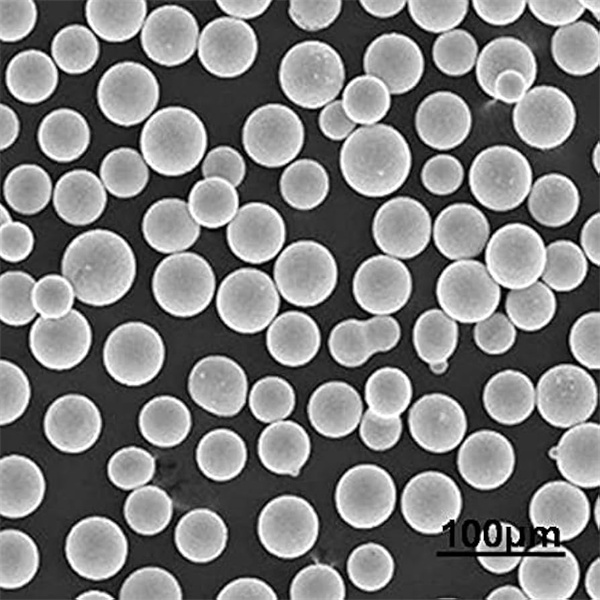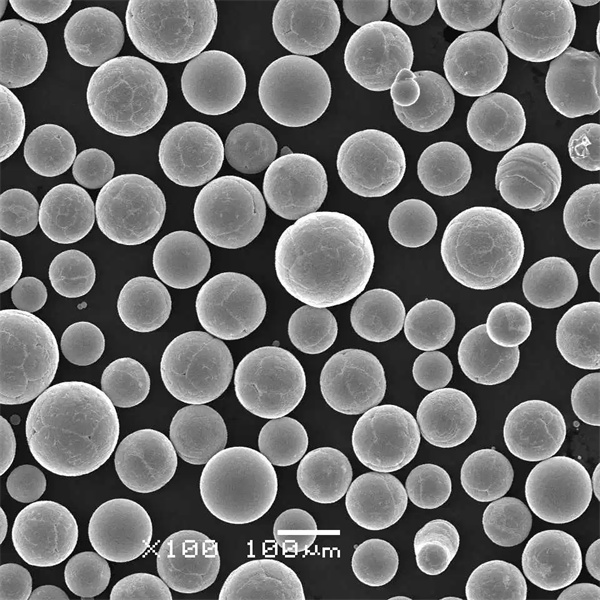PREP Refractory Titanium Alloy Powder
TiAl is a new class of aerospace alloys that offers an excellent strength-to-weight ratio as well as high chemical and thermal stability. Gamma titanium aluminide alloy has excellent mechanical properties as well as oxidation and corrosion resistance at elevated temperatures (over 600 degrees Celsius). TiAl is the latest class of materials competing with Nickel superalloys for the fabrication of aircraft engine parts such as low-pressure turbine.
Low MOQ
Provide low minimum order quantity to meet different needs.
OEM & ODM
Provide customized products and design services to meet unique customer needs.
Adequate Stock
Ensure fast order processing and provide reliable and efficient service.
Customer Satisfaction
Provide high quality products with customer satisfaction at the core.
share this product
Table of Contents
Overview of PREP Refractory Titanium Alloy Powder
PREP (Plasma Rotating Electrode Process) alloy is a high-performance refractory titanium alloy powder designed for additive manufacturing of components needing excellent mechanical properties at extreme temperatures.
This article provides a comprehensive guide to PREP titanium alloy powder covering composition, properties, print parameters, applications, specifications, suppliers, handling, inspection, comparisons, pros and cons, and FAQs. Quantitative information is presented in easy-to-reference tables.
Composition of PREP Titanium Alloy Powder
PREP alloy has a complex composition containing various solute elements:
| Element | Weight % | Purpose |
|---|---|---|
| Titanium | Balance | Principal matrix element |
| Aluminum | 5 – 7 | Solid solution strengthener |
| Tin | 1 – 3 | Solid solution strengthener |
| Zirconium | 0.5 – 2 | Grain structure control |
| Molybdenum | 1 – 3 | Solid solution strengthener |
| Silicon | 0.5 – 1.5 | Oxidation resistance |
| Niobium | 1 – 3 | Carbide former |
| Tantalum | 1 – 3 | Carbide former |
Trace amounts of boron and carbon are also added for grain boundary strengthening.
Properties of PREP Titanium Alloy Powder
PREP alloy exhibits an exceptional combination of properties:
| Property | Description |
|---|---|
| High strength | Excellent tensile and creep strength up to 700°C |
| Fatigue resistance | High fatigue life at elevated temperatures |
| Fracture toughness | Up to 100 MPa-√m |
| Oxidation resistance | Forms protective oxide scale |
| Thermal stability | Microstructural stability after prolonged exposures |
| Damage tolerance | Resistant to crack growth |
| Biocompatibility | Non-toxic and non-allergenic |
The properties enable lightweight components for demanding applications.
AM Print Parameters for PREP Titanium Alloy Powder
Typical AM process parameters include:
| Parameter | Typical Value | Purpose |
|---|---|---|
| Layer height | 30-50 μm | Resolution versus build speed |
| Laser power | 150-500 W | Sufficient melting without evaporation |
| Scan speed | 750-1500 mm/s | Density versus production rate |
| Hatch spacing | 80-120 μm | Mechanical properties |
| Hot isostatic pressing | 900°C, 100 MPa, 3 hrs | Eliminate internal voids |
Parameters optimized for density, microstructure, build rate and post-processing requirements.
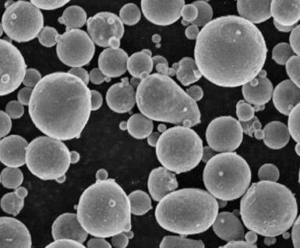
Applications of 3D Printed PREP Titanium Parts
PREP alloy components serve critical applications including:
| Industry | Components |
|---|---|
| Aerospace | Turbine blades, compressor parts, mounts |
| Automotive | Connecting rods, valves, turbocharger wheels |
| Medical | Orthopedic implants, surgical tools |
| Chemical | Pumps, valves, reaction vessels |
| Power generation | Hot gas path components |
Benefits over wrought equivalents include complex geometries and accelerated development.
Specifications of PREP Titanium Powder for AM
PREP alloy powder must meet strict specifications:
| Parameter | Specification |
|---|---|
| Particle size range | 15-45 μm typical |
| Particle shape | Spherical morphology |
| Apparent density | >2.5 g/cc |
| Tap density | >4.5 g/cc |
| Hall flow rate | >35 sec for 50 g |
| Purity | >99.95% |
| Oxygen content | <1000 ppm |
Custom size distributions and controlled oxygen levels available.
Suppliers of PREP Titanium Alloy Powder
PREP alloy powder is supplied by:
| Supplier | Location |
|---|---|
| Praxair | USA |
| AP&C | Canada |
| Tekna | Canada |
| Metalysis | UK |
| LPW Technology | UK |
| EOS | Germany |
Prices range from $250/kg to $450/kg based on quality, size distribution and order volume.
Handling and Storage of PREP Titanium Powder
As a reactive material, careful handling of PREP alloy powder is essential:
- Store sealed containers under inert gas like argon
- Prevent exposure to air and moisture during handling
- Use properly grounded equipment
- Avoid dust accumulation to minimize explosion risk
- Local exhaust ventilation recommended
- Wear appropriate PPE and avoid inhalation
Proper techniques and controls prevent powder oxidation.
Inspection and Testing of PREP Titanium Powder
PREP alloy powder batches are validated using:
| Method | Parameters Tested |
|---|---|
| Sieve analysis | Particle size distribution |
| SEM imaging | Particle morphology |
| EDX | Chemistry/composition |
| XRD | Phases present |
| Pycnometry | Density |
| Hall flow rate | Powder flowability |
Testing per ASTM standards ensures batch-to-batch consistency.
Comparing PREP Alloy to Alternative Titanium Powders
PREP alloy compares to other titanium materials as:
| Alloy | Strength | Oxidation Resistance | Cost | Printability |
|---|---|---|---|---|
| PREP | Excellent | Excellent | High | Good |
| Ti64 | Good | Good | Medium | Fair |
| Ti6242 | Excellent | Good | High | Fair |
| CP-Ti | Low | Excellent | Low | Excellent |
PREP provides the best all-round properties but at higher cost than workhorse alloys like Ti64.
Pros and Cons of PREP Titanium Powder for AM
| Pros | Cons |
|---|---|
| Outstanding high temperature strength | Expensive compared to Ti64 and CP-Ti |
| Excellent thermomechanical fatigue resistance | Higher density than other titanium alloys |
| Complex geometries feasible | Controlled atmosphere handling mandatory |
| Lower anisotropy than Ti64 and CP-Ti | Processing very technique sensitive |
| Matching properties to PREP wrought forms | Limited suppliers and alloy variants |
PREP enables exceptional performance additive manufacturing but requires very rigorous control of process conditions.
Frequently Asked Questions about PREP Titanium Alloy Powder
Q: What is PREP titanium alloy used for in AM?
A: PREP alloy is used to 3D print lightweight aerospace and automotive components needing extremely high mechanical properties at temperatures up to 700°C.
Q: What particle size is recommended for printing PREP titanium alloy?
A: A powder size range of 15-45 microns provides a good balance of flowability, high resolution, and dense printed parts.
Q: Does PREP titanium require hot isostatic pressing after AM?
A: HIP is recommended to eliminate internal voids, maximize fatigue resistance and achieve full density. It may not be mandatory for non-critical applications.
Q: What material has properties closest to PREP titanium alloy?
A: Ti-6Al-4V has comparable density and good high temperature strength, but lower oxidation resistance compared to PREP alloys.
Q: What benefits does PREP alloy offer over Ti-6Al-4V in AM?
A: Key advantages are higher tensile and fatigue strength up to 700°C along with significantly better creep and thermo-mechanical fatigue resistance.
Q: What precision can be obtained with PREP titanium printed parts?
A: After post-processing, printed PREP components can achieve dimensional tolerances and surface finish comparable to CNC machined titanium parts.
Q: What defects can occur when printing PREP titanium alloy?
A: Potential defects are cracking, distortion, porosity, incomplete fusion, and surface roughness. Most can be minimized through optimized parameters.
Q: Can support structures be easily removed from PREP titanium AM parts?
A: Properly designed minimal supports are readily detachable after printing due to excellent mechanical properties of PREP alloys.
Q: What type of post-processing is typically done on PREP titanium components?
A: Hot isostatic pressing, heat treatment, abrasive flow machining, CNC machining, and electropolishing are commonly used post-processes.
Q: What is the key difference between Ti-6Al-4V Grade 5 and Grade 23?
A: Grade 5 has higher oxygen content for better powder flowability while Grade 23 has lower oxygen for superior fracture toughness and fatigue resistance.
About Met3DP
Product Category
HOT SALE
CONTACT US
Any questions? Send us message now! We’ll serve your request with a whole team after receiving your message.

